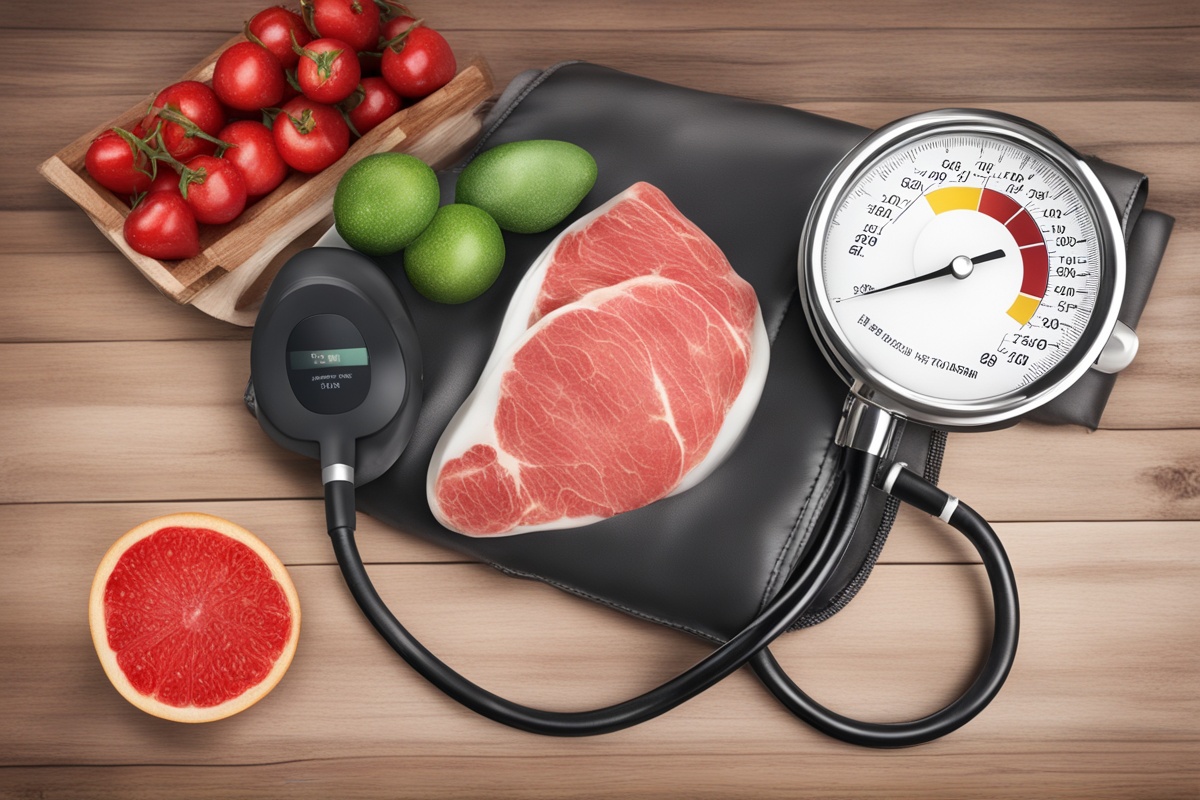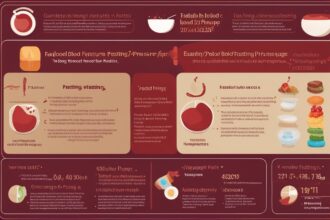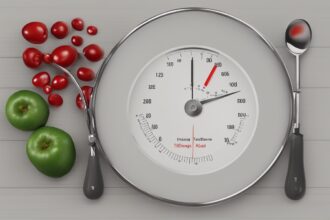Intermittent fasting (IF) has gained significant attention in recent years as a powerful tool for weight loss, metabolic health, and overall wellness. Among its many potential benefits, one area of growing interest is its impact on blood pressure, particularly for individuals with hypertension. In this comprehensive guide, we’ll explore the connection between intermittent fasting and hypertension, diving into the science behind intermittent fasting hypertension benefits and how this eating pattern may help manage high blood pressure effectively.
What Is Intermittent Fasting?
Intermittent fasting is not a diet in the traditional sense but rather an eating pattern that alternates between periods of eating and fasting. Popular methods include the 16/8 method (fasting for 16 hours and eating during an 8-hour window), the 5:2 diet (eating normally for five days and restricting calories on two non-consecutive days), and alternate-day fasting. The primary goal of IF is to give the body a break from constant digestion, allowing it to focus on repair and metabolic processes.
While weight loss is often the main motivation for starting intermittent fasting, research suggests it offers a range of health benefits, including improved blood sugar control, reduced inflammation, and, notably, potential benefits for blood pressure regulation. Understanding how IF impacts hypertension can provide valuable insights for those looking to manage their condition naturally.
How Does Hypertension Affect Health?
Hypertension, or high blood pressure, is a chronic condition where the force of blood against the walls of arteries is consistently too high. Often called the “silent killer,” hypertension can go unnoticed for years while damaging vital organs like the heart, kidneys, and brain. If left unmanaged, it increases the risk of heart disease, stroke, and kidney failure.
Lifestyle factors such as poor diet, stress, lack of exercise, and obesity often contribute to hypertension. This is where intermittent fasting comes into play, as it addresses many of these underlying causes. By exploring intermittent fasting hypertension benefits, individuals may find a sustainable way to lower their blood pressure and improve overall cardiovascular health. For more on the basics of blood pressure, check out our post on Understanding Blood Pressure Basics.
Intermittent Fasting and Blood Pressure: The Science Behind It
Research into intermittent fasting and its effects on blood pressure is still emerging, but early studies are promising. One of the primary ways IF may benefit hypertension is through weight loss. Excess body weight, particularly around the abdomen, is a significant risk factor for high blood pressure. Intermittent fasting promotes fat loss by reducing overall calorie intake and enhancing metabolic efficiency, which can lead to lower blood pressure readings over time.
Additionally, IF has been shown to improve insulin sensitivity and reduce inflammation, both of which are linked to hypertension. A 2019 study published in the journal Obesity found that participants following an intermittent fasting regimen experienced significant reductions in blood pressure, even without substantial weight loss. These findings suggest that the intermittent fasting hypertension benefits extend beyond just shedding pounds. To learn more about how inflammation impacts blood pressure, read our article on Inflammation and Hypertension Connection.
Key Benefits of Intermittent Fasting for Hypertension
The potential benefits of intermittent fasting for managing hypertension are multifaceted. Here are some of the most notable advantages:
- Weight Management: As mentioned, weight loss from IF can directly lower blood pressure by reducing the strain on the cardiovascular system.
- Improved Insulin Sensitivity: Better insulin regulation can prevent blood vessel stiffness, a common issue in hypertension.
- Reduced Stress Hormones: Fasting may lower cortisol levels, a stress hormone that can elevate blood pressure when chronically high.
- Enhanced Autophagy: Fasting triggers autophagy, a cellular repair process that may improve vascular health and reduce blood pressure.
While these benefits are promising, it’s essential to approach intermittent fasting with guidance, especially for those with existing medical conditions. For tips on starting IF safely, see our guide on Beginner’s Guide to Intermittent Fasting.
Practical Tips for Using Intermittent Fasting to Manage Hypertension
If you’re considering intermittent fasting to help manage high blood pressure, it’s crucial to start slowly and prioritize safety. Here are some practical tips to maximize the intermittent fasting hypertension benefits while minimizing risks:
- Consult Your Doctor: Before beginning any fasting regimen, speak with a healthcare provider, especially if you’re on blood pressure medication or have other health concerns.
- Stay Hydrated: Dehydration can exacerbate high blood pressure, so drink plenty of water during fasting periods.
- Focus on Nutrient-Dense Foods: During eating windows, prioritize whole foods like vegetables, lean proteins, and healthy fats to support cardiovascular health.
- Monitor Your Blood Pressure: Keep track of your readings to see how fasting affects your numbers and adjust your approach as needed.
- Avoid Overeating: Bingeing during eating windows can negate the benefits of fasting, so practice mindful eating.
For additional dietary advice tailored to hypertension, explore our post on Heart-Healthy Diets for Hypertension.
Potential Risks and Considerations
While intermittent fasting offers potential benefits for hypertension, it’s not without risks. Fasting can lead to side effects like dizziness, fatigue, or low blood sugar, which may be particularly concerning for individuals with high blood pressure. Additionally, drastic calorie restriction or prolonged fasting without medical supervision could cause nutrient deficiencies or exacerbate underlying conditions.
People on blood pressure medications should be especially cautious, as fasting may alter how these drugs work in the body. Always work with a healthcare professional to ensure that intermittent fasting is a safe and suitable option for your health needs. If you’re curious about other natural approaches to managing blood pressure, check out our article on Natural Remedies for High Blood Pressure.
Disclaimer: The information provided in this article is for educational purposes only and should not be considered medical advice. Intermittent fasting may not be suitable for everyone, especially those with pre-existing health conditions or on medication for hypertension. Always consult with a qualified healthcare provider before making any changes to your diet or lifestyle. The authors and publishers of this content are not responsible for any adverse effects or consequences resulting from the use of the information provided.
References
- Wilkinson, M. J., et al. (2019). Ten-Hour Time-Restricted Eating Reduces Weight, Blood Pressure, and Atherogenic Lipids in Patients with Metabolic Syndrome. Cell Metabolism.
- American Heart Association. (2018). Effects of Intermittent Fasting on Cardiovascular Health. Hypertension.
- Mayo Clinic. (2023). High Blood Pressure (Hypertension): Lifestyle Changes to Manage Blood Pressure.
- de Cabo, R., & Mattson, M. P. (2019). Effects of Intermittent Fasting on Health, Aging, and Disease. New England Journal of Medicine.
- Harvard Medical School. (2022). Intermittent Fasting: A Heart-Healthy Option?
This content is for informational purposes only and not a substitute for professional advice.






